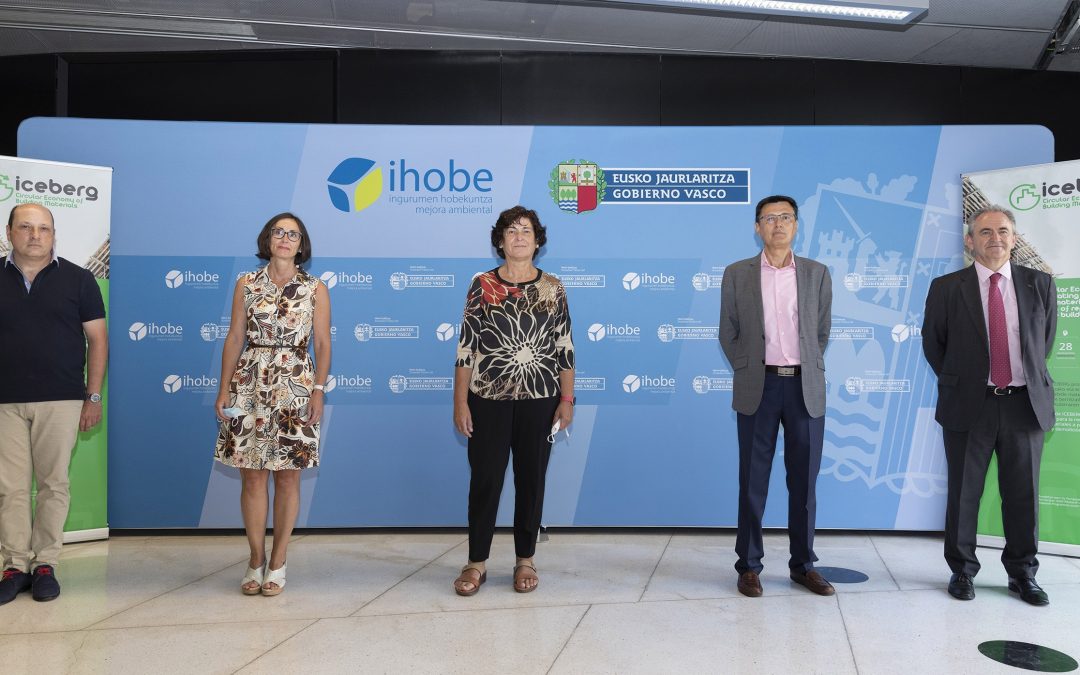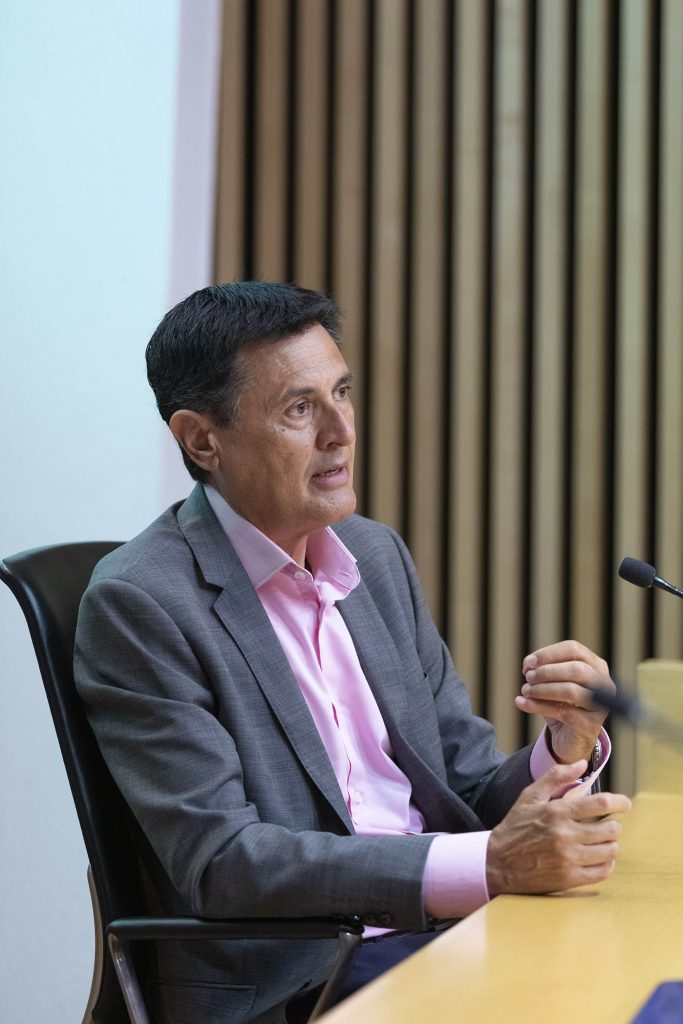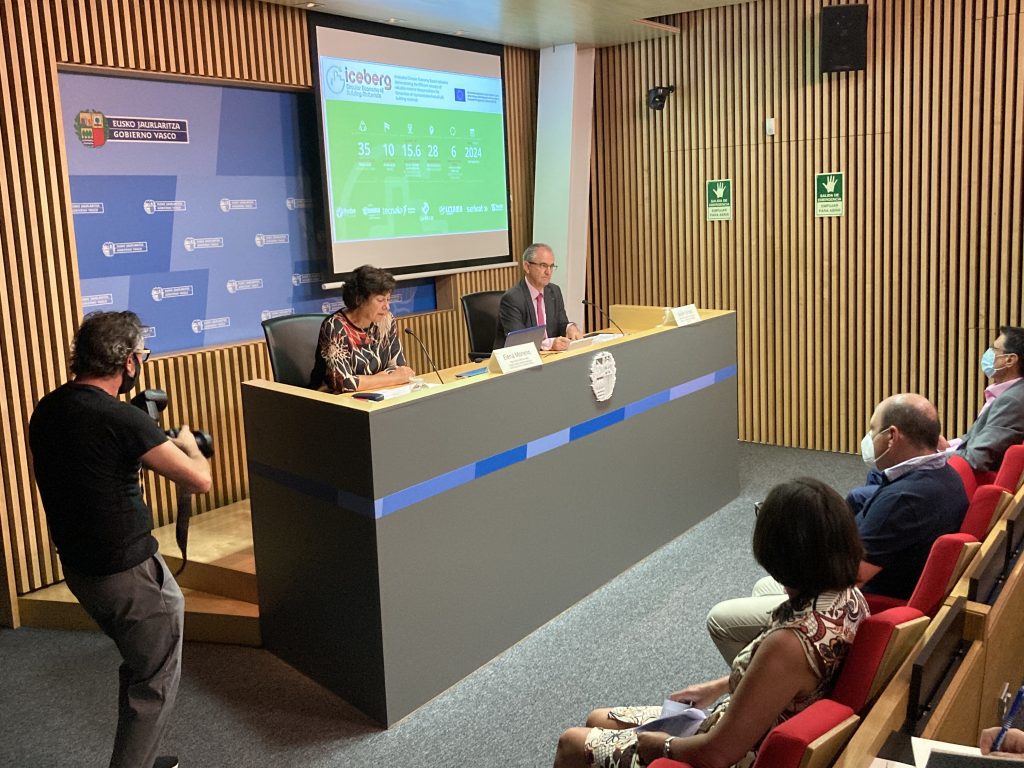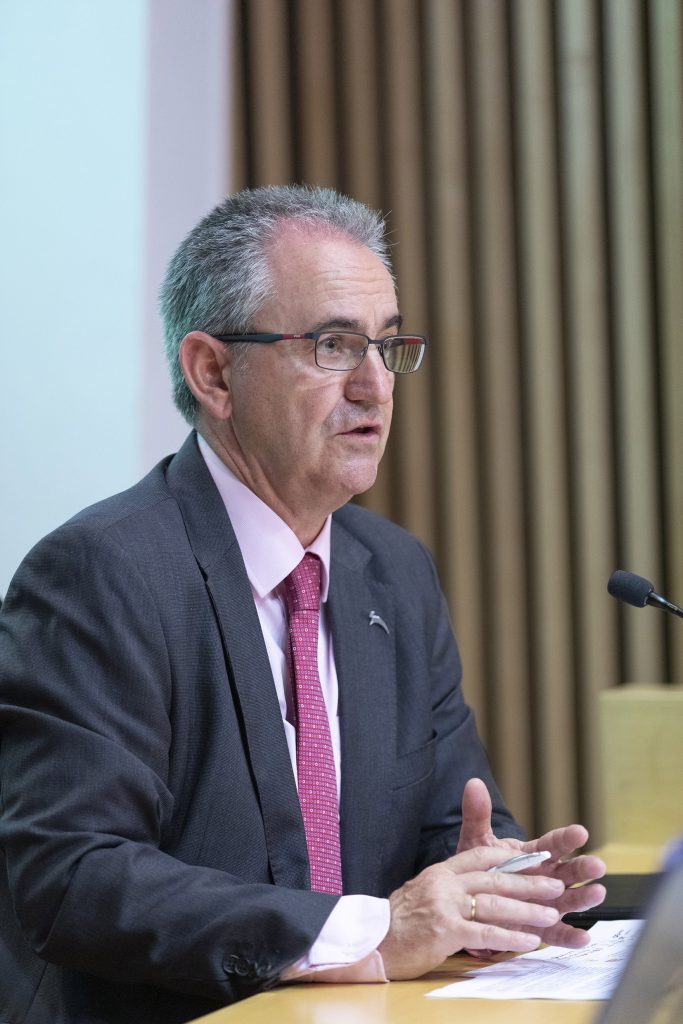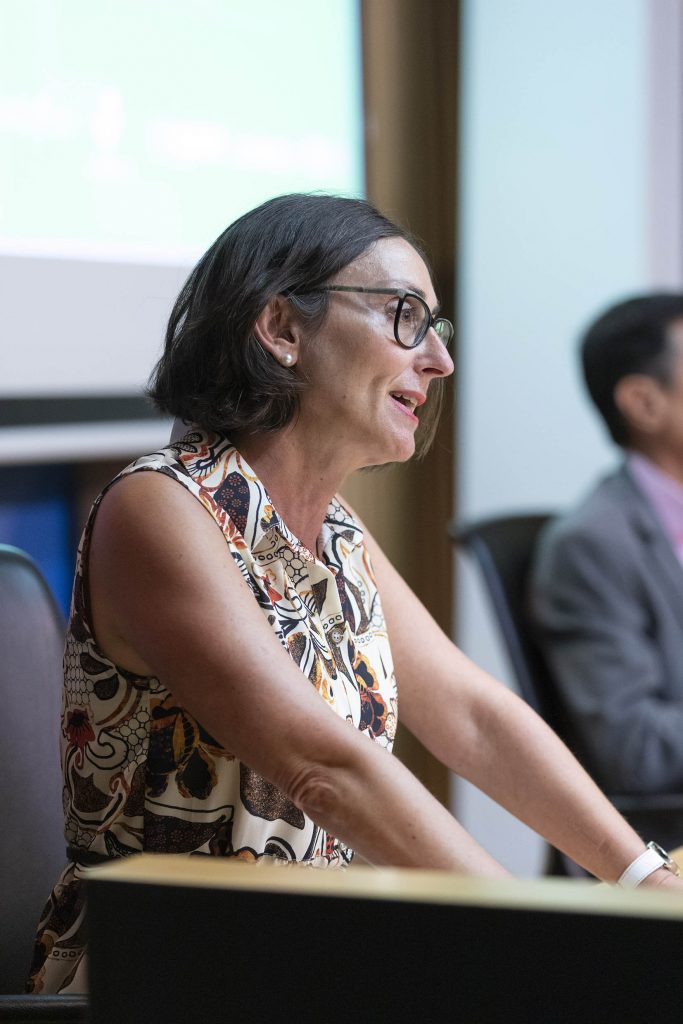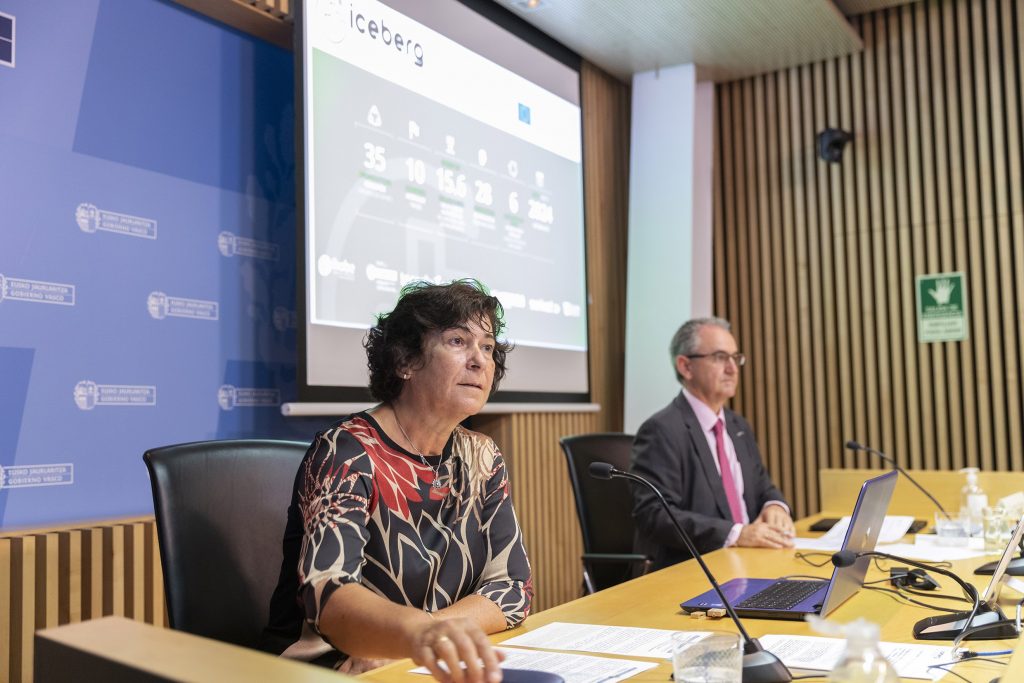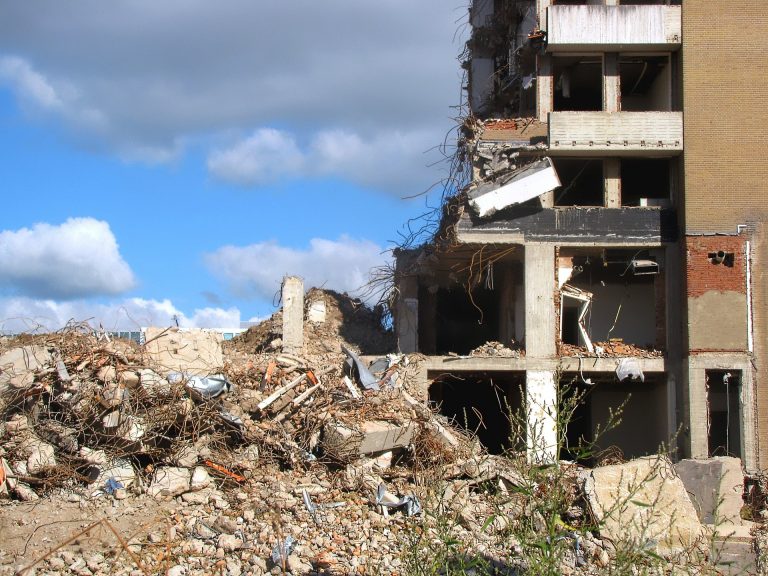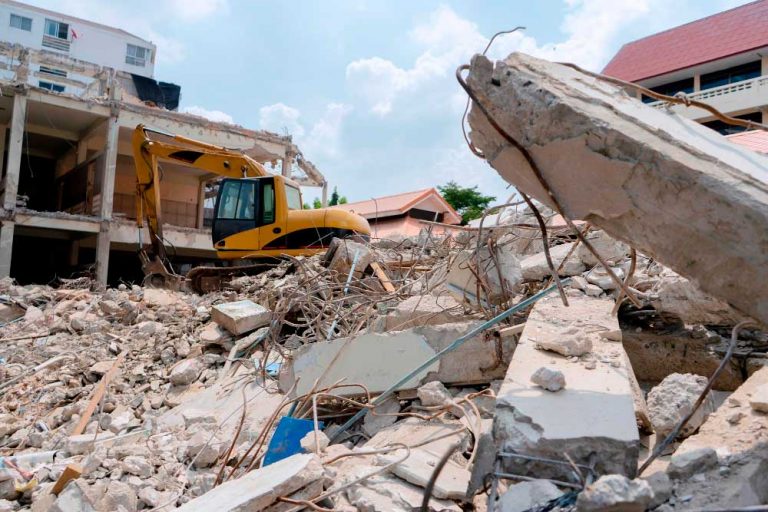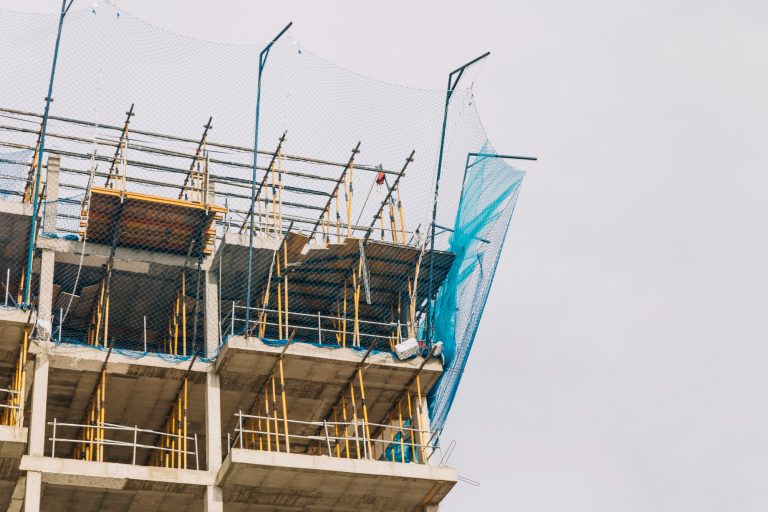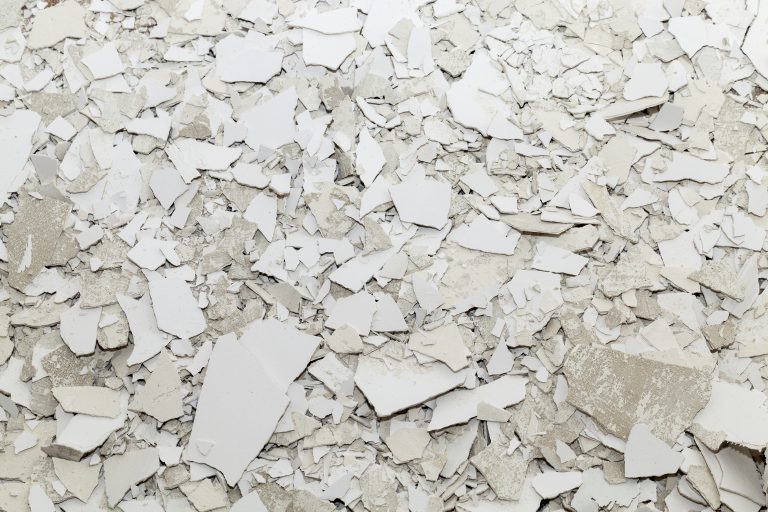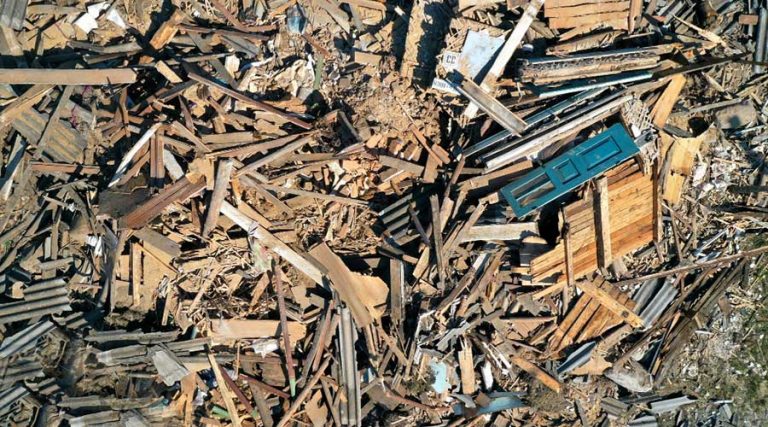The project that started last May was presented in Bilbao (Basque Country) on July 27th with the attendance of the local partners
A total of 35 public and private organisations from ten European countries are taking part in the European ICEBERG project, funded by the European Union as part of the Horizon 2020 Research and Innovation Framework Programme (contract 869336). It aims to tackle the recycling and recovery of some of the most common construction and demolition waste (C&DW). ICEBERG was presented at a press conference in Bilbao (Basque Country) last July 27th, with the attendance of the local partners: Ihobe – the Basque Government’s public environmental management company, GAIKER, Serikat, Lezama Demoliciones and TECNALIA, which coordinates the project.
The objective of ICEBERG is to design, develop and validate innovative recycling systems and technologies, to make it possible to produce high-value recovered materials, that have a low level of impurities (less than 8%) and are safe. Validation will be carried out on an industrial scale by means of six case studies in different locations in Europe, covering the circularity of concrete, ceramics, wood, plaster, insulating foams and super-insulating materials. It also seeks to improve the reliability and acceptability of recycled materials from construction waste.
In fact, while there has been great progress in the management of C&DW over the past two decades, barriers still need to be removed in order to achieve a circular economy in the construction and demolition sector. The goal is not only to avoid landfill as a destination for waste, but also to validate uses with greater added value. To this end, it is necessary to improve the selective separation of sub-streams on site, develop automatic sorting equipment, on-line classification, purification and recovery.
The project that started last May, will last for four years (2020- 2024) and has a budget of 15,667,498 euros, of which the European Union is providing 12,997,935 euros. In the first half of the project, tools and technologies will be developed and adapted to improve the traceability, identification, separation, recycling and reuse of materials from C&DW. The second part of the project will be dedicated to demonstrating these solutions in six case studies, by analysing their economic and environmental impact and their impact on workers’ health.
The ICEBERG Project has brought together 35 organisations – 14 large companies, ten SMEs, nine research centres and universities, and two public environmental companies – with a wide range of experience in the construction and environmental sector, from Germany, Belgium, Spain, Finland, France, Greece, Italy, the Netherlands, the United Kingdom and Turkey.
The project partners are:
- Germany: EPEA and RAMPF Eco Solutions
- Belgium: Colruyt, OVAM, Orbix Productions, Tracimat and Vlaamse Instelling voor Technologisch Onderzoek
- Finland: Teknologian Tutkimuskeskus VVT, Tiihonen Ismo and Purkupiha
- France: Keey Aerogel and Soprema
- Greece: Megara Resins
- Italy: RINA Consulting
- The Netherlands: GBN, Technische Universiteit Delft, Universiteit Leiden, VolkerInfra and C2CA Technology
- United Kingdom: Enva, Loughbrorough University and Saint Gobain Construction Products UK
- Turkey: Bese, Cimsa, Hacettepe Universitesi and Tepe Betopan.
- Spain: Keraben, Spanish National Research Council (CSIC), Lenz Instruments, GAIKER, TECNALIA, Ihobe – the Basque Government’s public environmental management company, Serikat, Lezama Demoliciones and Viuda de Sáinz.
The main objective of the project is to develop and implement both technological and non-technological solutions to achieve greater recovery of raw materials contained in C&DW and to incorporate circular economy concepts into the value chain of the construction sector; for example, the use of materials recovered from C&DW as secondary raw materials in new applications for the construction sector itself.
OBJECTIVES
The project will create and integrate smart solutions that support the reverse logistics involved in the recovery and recycling of construction materials. The plans include developing a demolition support tool to quickly and accurately create a virtual model of the building to be demolished. This will allow to obtain a reliable estimate of the type and quantities of waste that can be expected, and to know the environmental and economic impact of demolition and waste management tasks. In addition, a digital platform and an authentication system based on wireless technologies will be set up to improve the identification and traceability of materials and products.
With respect to classification and recycling technologies, ICEBERG is committed to improving the automatic separation of mixed waste. To this end, it will design and manufacture a mobile separation unit using hyperspectral sensors, including machine-learning software, robotic manipulators and blower nozzles to improve the efficiency of mixed waste separation.
On top of that, for each of the main construction materials used, various recycling and purification technologies will be enhanced, thus increasing their added value: on-line quality control, carbonation and purification of concrete waste, micro-milling of ceramic waste, rapid pyrolysis of wood waste and subsequent improvement in the quality of the fibres obtained, improvement in the quality of gypsum recycled from demolition or alternative sources, purification and solvolysis of polyurethane foams and processing of glass or high-silica waste by means of a hydrothermal and supercritical reactor to obtain aerogels.
Subsequently, new construction products with high levels of circularity will be designed and manufactured. They will be durable elements, which can be easily disassembled and will incorporate high quantities of recovered materials (between 30% and 100%). Among other things, the aim is to develop eco-cement and eco-concrete, ultra-lightweight concrete, prefabricated concrete blocks by carbonation, ceramic products with lower embodied energy (up to 40% less), wood fibre insulation boards, laminated gypsum boards with greater thermal insulation and up to 35% recycled gypsum and recycled polyurethane insulation boards. All of these solutions will be validated at six case studies in different locations throughout Europe.

